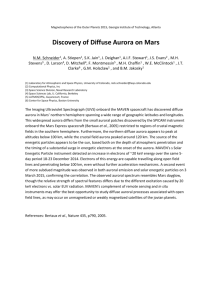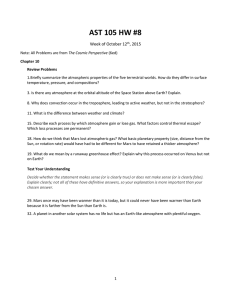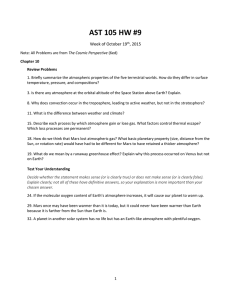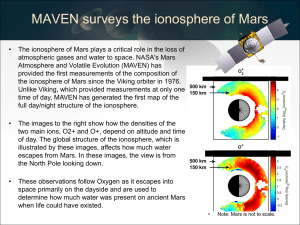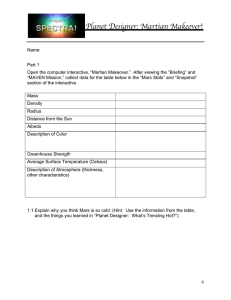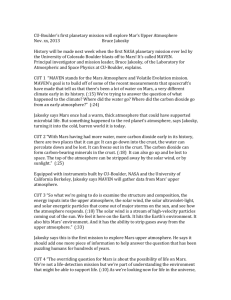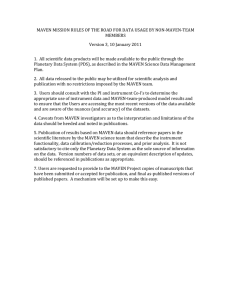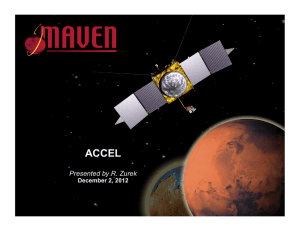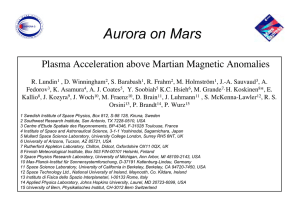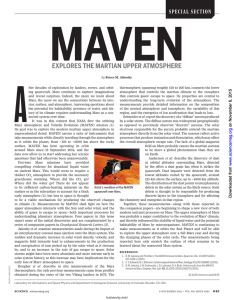MAVEN Detects Unexpected Aurora on Mars
advertisement
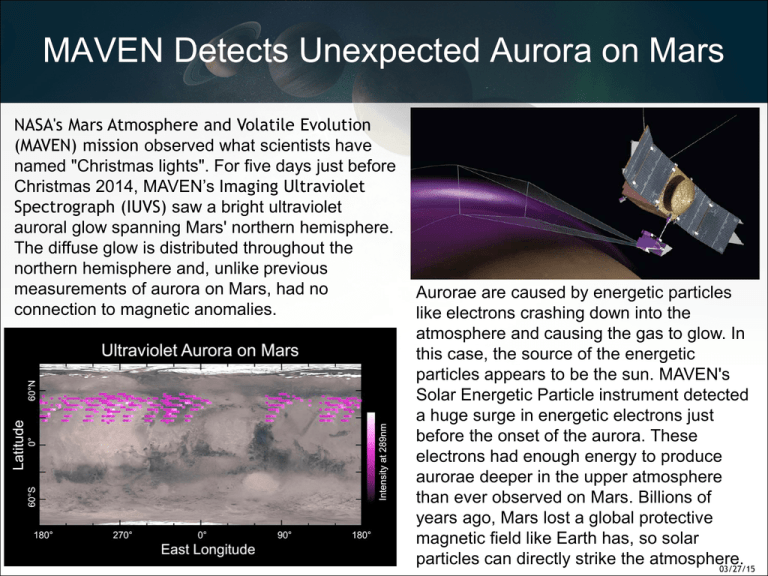
MAVEN Detects Unexpected Aurora on Mars NASA's Mars Atmosphere and Volatile Evolution (MAVEN) mission observed what scientists have named "Christmas lights". For five days just before Christmas 2014, MAVEN’s Imaging Ultraviolet Spectrograph (IUVS) saw a bright ultraviolet auroral glow spanning Mars' northern hemisphere. The diffuse glow is distributed throughout the northern hemisphere and, unlike previous measurements of aurora on Mars, had no connection to magnetic anomalies. Aurorae are caused by energetic particles like electrons crashing down into the atmosphere and causing the gas to glow. In this case, the source of the energetic particles appears to be the sun. MAVEN's Solar Energetic Particle instrument detected a huge surge in energetic electrons just before the onset of the aurora. These electrons had enough energy to produce aurorae deeper in the upper atmosphere than ever observed on Mars. Billions of years ago, Mars lost a global protective magnetic field like Earth has, so solar particles can directly strike the atmosphere. 03/27/15
